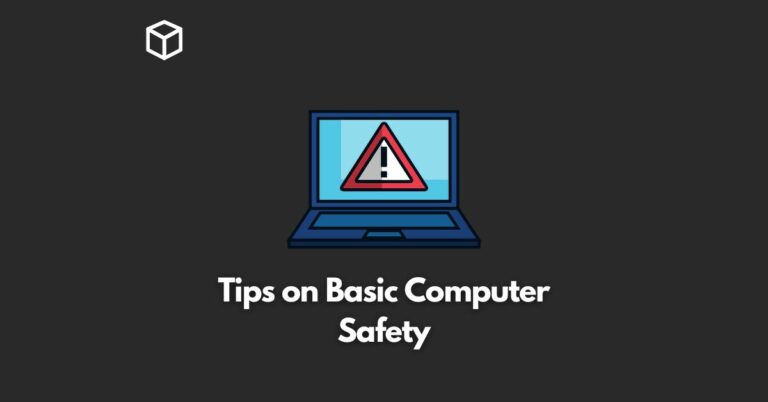In the contemporary digital age, cybersecurity has gained significant momentum and relevance.
Its rapid evolution can be attributed to the growing frequency of cyberattacks worldwide, each with more devastating consequences than the last.
Consequently, there’s a pressing need for skilled professionals equipped with robust cybersecurity knowledge and capabilities.
Despite an increasing number of educational institutions integrating cybersecurity modules into their curriculum, the demand for skilled workers in this field remains insatiable.
The good news is that the advent of digital learning platforms has made it feasible for aspiring individuals to acquire proficiency in cybersecurity from anywhere, at any time.
Becoming a Self-Taught Cybersecurity Maven
While the prospect of mastering cybersecurity on your own might seem daunting, it’s entirely achievable.
The key prerequisites are motivation, discipline and a steadfast commitment to learning.
It’s crucial to remember that cybersecurity is a vast, intricate field with a steep learning curve. As such, learning cybersecurity from scratch necessitates tenacity and determination.
In this expansive guide, you’ll discover a step-by-step approach to learning cybersecurity, along with a myriad of resources designed to help you excel in this rapidly evolving field.
Taking the Solo Route in Learning Cybersecurity
With the profusion of online courses and learning resources available, you can indeed learn cybersecurity on your own.
Top-tier schools such as MIT, Harvard, Stanford, among others, have open courseware through which you can access comprehensive cybersecurity content curated by world-class instructors.
These programs will equip you with a robust understanding of crucial aspects of cybersecurity, such as protecting sensitive information, identifying threats and mitigating security risks within an organization.
In addition, numerous free online courses are available through platforms like Coursera, edX and Udemy, each offering specialized cybersecurity content.
Practical Tips for Learning Cybersecurity
Mastering cybersecurity can be a gratifying journey if you adopt a strategic approach and employ the right tools.
Here are some tips to help you embark on your cybersecurity learning quest.
1. Start With the Basics
Venturing into the complex domain of cybersecurity necessitates a strong foundational understanding of its basic principles.
In addition to technical skills, certain soft skills are integral to building a successful cybersecurity career. The fundamental areas to focus on include:
Software Skills: Understanding how to work within cloud-based environments and different operating systems is vital. Familiarity with various software packages, such as office suites and anti-virus systems, is also crucial.
Data: You must understand the various types of data, their classification and when to involve a forensic expert.
Networks: A solid grasp of how firewalls, intrusion detection systems and virtual private networks (VPNs) function is important.
Cybersecurity Laws: It’s essential to acquaint yourself with key legislative frameworks such as the Federal Information Security Management Act (FISMA) and similar laws that could impact your work.
Ethical Hacking: Understanding the basics of ethical hacking and familiarizing yourself with tools like Nmap, Wireshark and Kali Linux is key. Mastery of penetration testing and ethical hacking is crucial for pre-empting cyberattacks.
2. Take a Course
Investing in credible and reliable cybersecurity training resources is vital.
Online platforms offer a range of cyber security courses that cater to different competency levels.
Whether you opt for an online course or a bootcamp, you’ll enjoy the convenience of learning at your own pace, with the flexibility to adapt to your schedule.
3. Enter Contests or Get Feedback
Participation in cybersecurity contests allows you to apply your theoretical knowledge to practical scenarios.
This not only enables you to test your skills but also aids in identifying areas for improvement. Additionally, it’s always beneficial to seek feedback from to reduce complexity.
Keeping a secure backup of all important data is a good practice to follow.
Data can be backed up on a cloud server, external hard drives, or even on a USB flash drive.
Make sure to secure the backups with strong passwords, two-factor authentication and encryption. Regularly test your backups to ensure they’re functioning correctly.
4. The Internet of Things (IoT) and Cybersecurity
With the proliferation of IoT devices, they’ve become a prime target for cyber attackers due to their connectivity.
IoT devices collect vast amounts of data, which, if breached, could lead to privacy issues.
Therefore, understanding IoT security is crucial for a well-rounded cybersecurity professional.
Topics to cover should include secure coding, encryption, access controls and security-by-design principles for IoT devices.
5. Building Your Personal Cybersecurity Lab
Once you’ve covered the basics of cybersecurity, you can set up a personal cybersecurity lab to experiment and practice.
This could be a virtual lab on your computer or a physical one with separate devices.
In your lab, you can practice different cybersecurity techniques and also test different malware types in a safe environment.
This will help you understand the functioning and countermeasures better.
6. Joining Cybersecurity Communities
A great way to stay updated with the latest trends and threats in the cybersecurity field is by joining related communities.
Online forums like StackExchange’s security section, Reddit’s r/cybersecurity and r/netsec and GitHub’s Awesome Cybersecurity list are great places to start.
Here, you can interact with fellow learners and experienced professionals who can provide valuable insights and resources.
7. The Human Factor in Cybersecurity
A crucial aspect of cybersecurity that is often overlooked is the human element. Human error is often the cause of successful cyber attacks.
Cybersecurity professionals must be aware of social engineering techniques used by hackers to trick people into revealing sensitive information.
Training in this area involves learning about phishing attacks, impersonation, baiting and other deception-based techniques.
8. Privacy Laws and Ethical Implications
Cybersecurity is not just about protecting against threats; it also involves the ethical use of data and respect for privacy.
Understanding data privacy laws such as GDPR (General Data Protection Regulation) and CCPA (California Consumer Privacy Act) is vital.
Additionally, the ethical implications of cybersecurity practices, such as the balance between security and personal privacy, should be carefully considered.
9. Importance of Continuous Learning in Cybersecurity
The cybersecurity field is continually evolving. New threats emerge daily and technologies used to combat them are constantly improving.
It’s essential for cybersecurity professionals to commit to lifelong learning and stay updated with the latest trends and technologies in the field.
Summary
With the rapid growth in the digital landscape, cybersecurity has become a necessity for individuals and organizations alike.
The increase in cyber threats has led to a high demand for skilled cybersecurity professionals.
While formal education in this field is beneficial, the rapid advancement of technology and the evolving nature of cyber threats mean that self-learning and continuous professional development are equally important.
Cybersecurity education begins with a strong understanding of the basics, including software skills, data classifications, network functions, cybersecurity laws and ethical hacking.
The use of online platforms like edX, Coursera and Udemy can provide valuable learning resources and courses.
To gain hands-on experience, participation in cybersecurity contests and seeking feedback from professionals is recommended.
It’s also advisable to choose a specialty within the field, such as application security, network security, penetration testing, or research.




